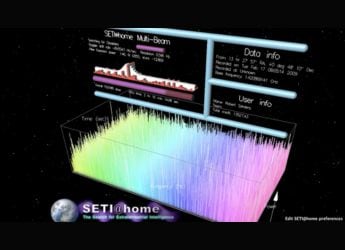- Home
- Transportation
- Transportation News
- WhatsApp Announces Metro Card Recharge Facility Via Chatbot Across Delhi NCR
WhatsApp Announces Metro Card Recharge Facility Via Chatbot Across Delhi-NCR
WhatsApp says the new Delhi Metro smart card recharge facility is available for all routes in the Delhi-NCR region, including Gurugram’s Rapid Metro.

Photo Credit: DMRC
WhatsApp introduced QR-based ticketing system for Delhi Metro's Airport Line in 2023
WhatsApp is rolling out a new facility to make the commute easier for Metro users in Delhi and NCR. With the rollout of its latest feature, WhatsApp users can now recharge their smart cards issued by the Delhi Metro Rail Corporation (DMRC) via a dedicated chatbot on the instant messaging platform. Apart from top-up services, it also offers other services such as ticket purchasing, viewing previous transactions and contacting customer support. This development follows DMRC's partnership with Airtel Payments Bank to provide commuters with digital payment solutions.
Metro Recharge via WhatsApp
WhatsApp says users can access ticketing and chatbot services on the app on both Android and iOS platforms. The facility is available in two languages: English and Hindi, and can be accessed by sending a ‘Hi' text to +91 9650855800, which is the number provided by the DMRC. Alternatively, the DMRC chatbot can also be found in the Payments section of WhatsApp, under the Chat with businesses option.
![]()
Delhi Metro Smart Card Top-Up on WhatsApp
To recharge a smart card, users first need to select their preferred language and then tap on the Smart Card topUp option. The chatbot will then provide a link which redirects them to a payment gateway. Users can then enter the card number, select the amount and make the payment to complete the recharge.
As per the company, commuters can top-up their smart cards on WhatsApp by using various payment methods, such as UPI and credit/debit cards. While top-up via UPI does not include any extra charge, debit card transactions will incur a 0.40 percent charge, while 1.10 percent charge will be levied on transactions made through the credit card. The payment services are powered by PeLocal.
WhatsApp says the new Delhi Metro smart card recharge facility is available for all routes in the Delhi and NCR region, including Gurugram's Rapid Metro. This feature builds upon the QR-based Delhi Metro ticketing system enabled by WhatsApp last year. Apart from Delhi, states such as Bengaluru, Hyderabad, Chennai, Nagpur, and Pune have also integrated WhatsApp into their transport-related services.
Catch the latest from the Consumer Electronics Show on Gadgets 360, at our CES 2026 hub.
Related Stories
- Samsung Galaxy Unpacked 2025
- ChatGPT
- Redmi Note 14 Pro+
- iPhone 16
- Apple Vision Pro
- Oneplus 12
- OnePlus Nord CE 3 Lite 5G
- iPhone 13
- Xiaomi 14 Pro
- Oppo Find N3
- Tecno Spark Go (2023)
- Realme V30
- Best Phones Under 25000
- Samsung Galaxy S24 Series
- Cryptocurrency
- iQoo 12
- Samsung Galaxy S24 Ultra
- Giottus
- Samsung Galaxy Z Flip 5
- Apple 'Scary Fast'
- Housefull 5
- GoPro Hero 12 Black Review
- Invincible Season 2
- JioGlass
- HD Ready TV
- Laptop Under 50000
- Smartwatch Under 10000
- Latest Mobile Phones
- Compare Phones
- Tecno Spark Go 3
- iQOO Z11 Turbo
- OPPO A6c
- Samsung Galaxy A07 5G
- Vivo Y500i
- OnePlus Turbo 6V
- OnePlus Turbo 6
- Itel Zeno 20 Max
- Lenovo Yoga Slim 7x (2025)
- Lenovo Yoga Slim 7a
- Lenovo Idea Tab Plus
- Realme Pad 3
- Garmin Quatix 8 Pro
- NoiseFit Pro 6R
- Haier H5E Series
- Acerpure Nitro Z Series 100-inch QLED TV
- Asus ROG Ally
- Nintendo Switch Lite
- Haier 1.6 Ton 5 Star Inverter Split AC (HSU19G-MZAID5BN-INV)
- Haier 1.6 Ton 5 Star Inverter Split AC (HSU19G-MZAIM5BN-INV)

















